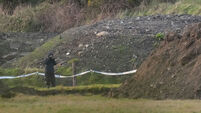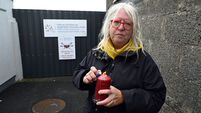Parents ‘must rethink teen drinking’

Ian O’Sullivan and Eimear Murphy also believe any future plans to tackle teenage drinking should examine attitudes of fathers towards alcohol, and how much they drink.
In the only known study of its kind among second-level students in Ireland, the transition-year duo from Coláiste Treasa in Kanturk, Co Cork, made some valuable discoveries about the relationship between the drinking habits of parents and the likelihood of adolescents to drink. But particularly strong links emerged between alcohol use of fathers and their children.













